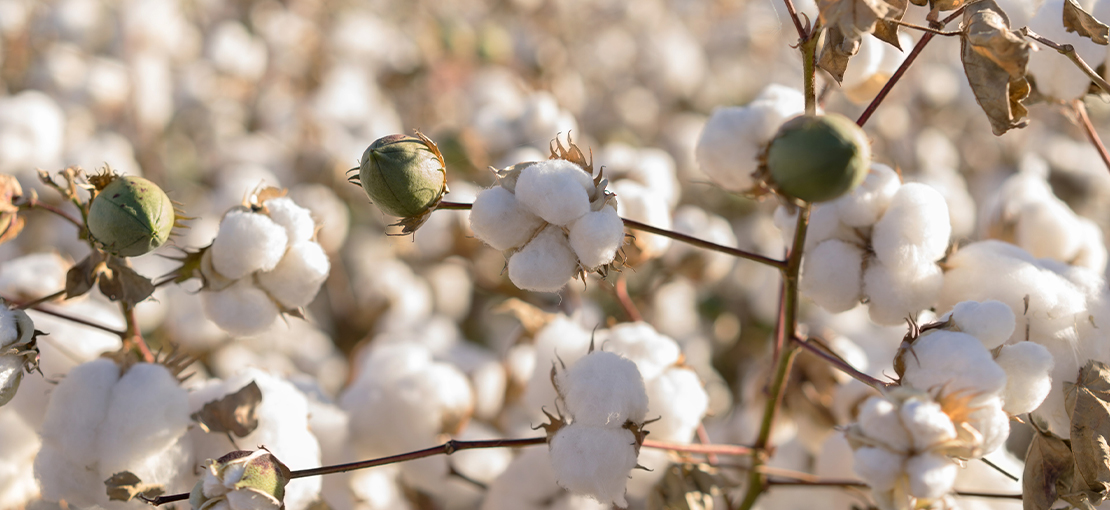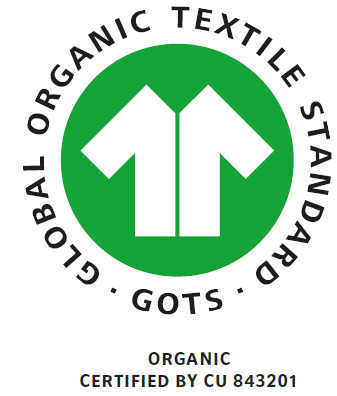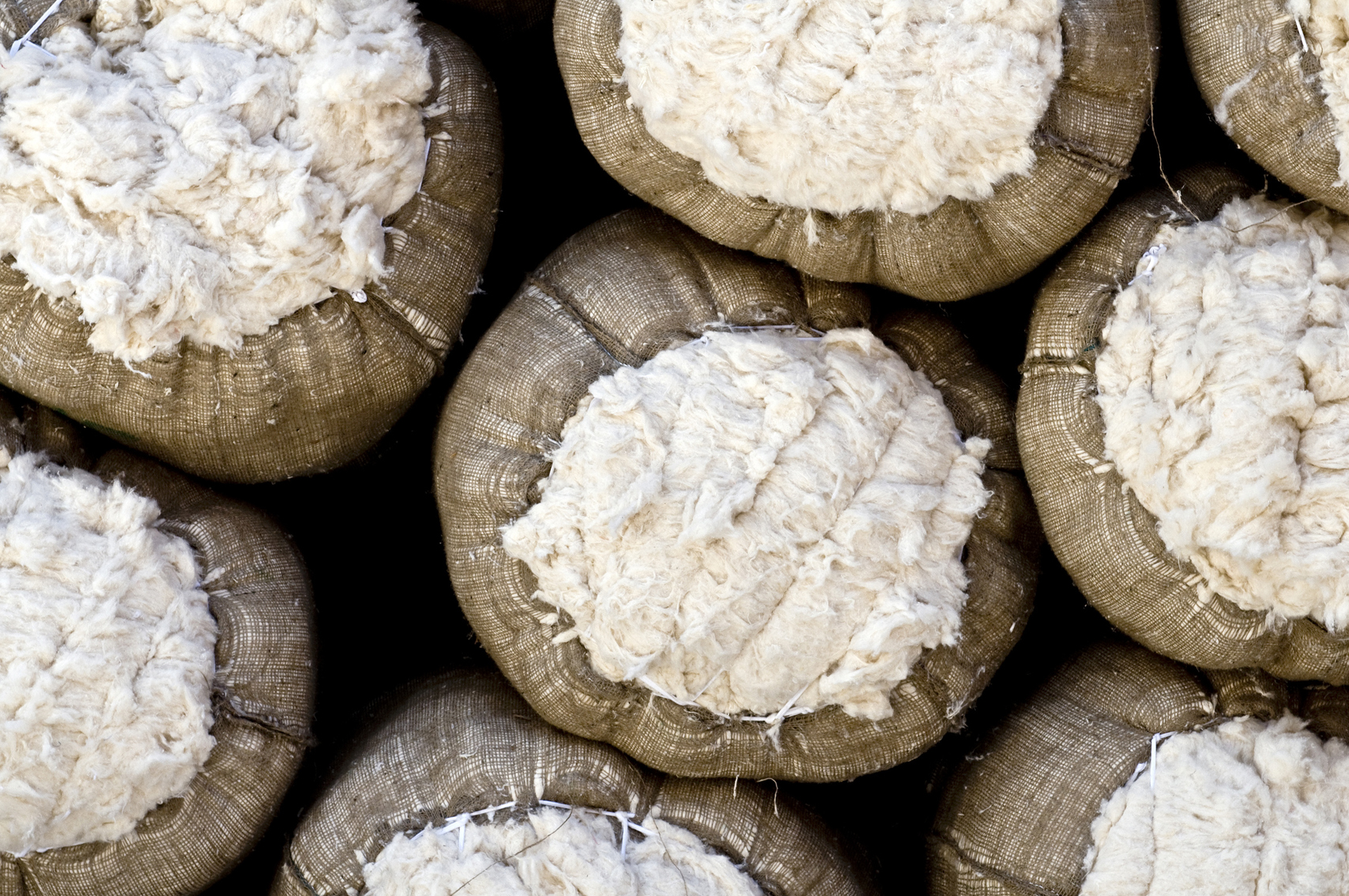
Organic cotton. Better for you. Better for the planet.
Fibers from sustainable agriculture for your T-shirt
In your VAUDE cotton products we use certified organic cotton that is manufactured under strict environmental conditions – without the use of chemical fertilizers or pesticides and requiring less water than conventional cultivation methods. Genetic engineering is also banned. After all, we want you to feel great with our products.

GOTS-certified from the field to our customers

GOTS stands for the Global Organic Textile Standard and it certifies every single production step of the products, from growing and harvesting the cotton until they reach our customers.
For years we have been processing certified organic cotton – one example: from our fabric manufacturers in Portugal. However, we weren’t allowed to use the GOTS seal for a long time. One reason for this is that VAUDE itself was not GOTS certified until 2016 and this is a prerequisite for the use of the GOTS seal.
The second reason is that the GOTS standard specifies a minimum proportion of natural fibers in the end product. For many VAUDE products, however, we use a different fiber blend, usually cotton combined with polyester and the proportion of polyester was too high for the GOTS.
VAUDE itself is now GOTS certified, and that includes the complete supply chain, from the cotton field to the customer. You can recognize all products from this supply chain with a GOTS compliant fiber blend by the HYPERLINK "http://nachhaltigkeitsbericht.vaude.com/gri/glossar.php"GOTS seal in our webshop and directly on the product in stores.
You can find the VAUDE GOTS certificate here.
100 % organic cotton, but it’s the exception that proves the rule
Some products with cotton content are manufactured by our producers in Asia. We also use organic cotton for this, but some of it is not (yet) GOTS certified.
We only use conventional cotton in absolutely exceptional cases: one of our jeans models includes a yarn blend of Primaloft, organic cotton and conventional cotton. Because this fabric itself is very innovative and offers excellent functionality, we decided to use conventional cotton as an exception. Together with our supplier, we are working to develop a version of this yarn that is completely organic.
No pesticides, no genetic engineering, no chemical fertilizers
Conventional cotton is a rather toxic affair – including for the farmers who make it and the residents of cotton plantations who are exposed to these chemical substances.

According to research by the Pesticide Action Network PAN, about 25 % of all insecticides and 11 % of all pesticides used worldwide are used in conventional cotton production, even though cotton accounts for only 2.4 % of the total global agricultural area.
Organic cotton, on the other hand, is cultivated following strict environmental guidelines. The use of pesticides and chemical fertilizers is prohibited. Also taboo: genetic engineering of the seed supply. Cultivating organic cotton uses significantly less water than conventional cotton cultivation and maintains natural soil fertility by means of crop rotation.
Organic cotton farmers are mostly organized into cooperatives.
They are able to set a higher price for their organic cotton which makes them more independent from raw material speculators on the world market.
Protecting biodiversity
By purchasing organic cotton, VAUDE contributes to the sustainable development of smaller farms and, as an additional benefit, to the retention of species diversity in the cultivated areas.
Farmers ensure the eco-friendly production of raw resources
Cotton is often grown on large fields. When it is mature, it is usually harvested mechanically; on small farms this is also sometimes done by hand. It is tedious, hard work.
The cotton is packed in rolls and delivered to the spinning mill. Once there, it must be prepared before being spun: the fibers must be cleaned of seeds and leaves. This process is called ginning.
The plant’s individual tufts are linked by the stem. They must be stretched in one direction before spinning at which time they are grouped into fiber ribbons that are then spun into yarns.




